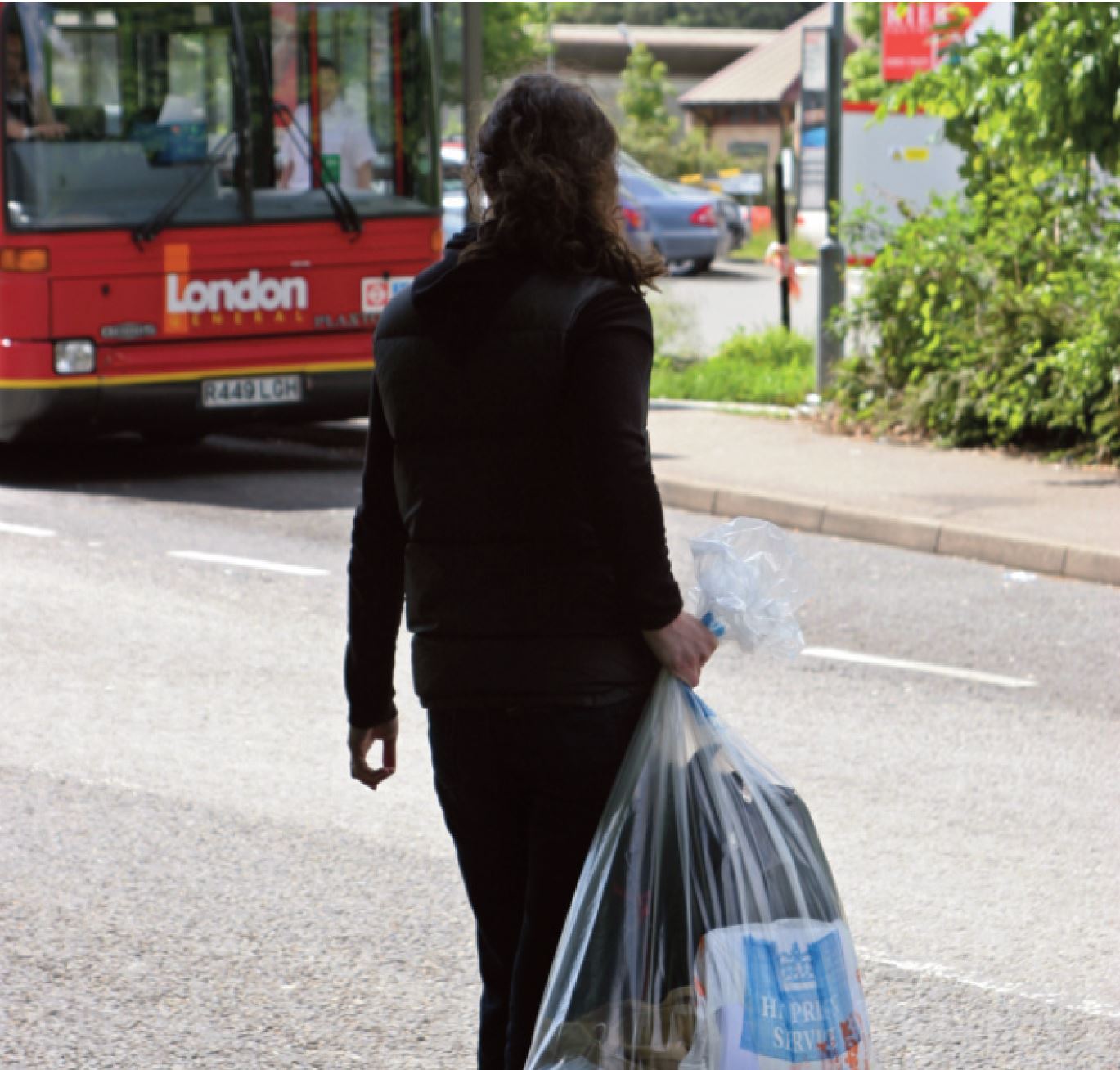Thanks to Andy Aitchison for permission to use his image (above).
The number of women recalled to prison has more than doubled since the introduction of government measures designed to support people on release, according to a new report published by the Prison Reform Trust.
The report, Broken Trust, reveals that over 1,700 women were recalled to prison in England and Wales during the last year, and that reforms which were intended to help are making things worse. Women are trapped in the justice system rather than being enabled to rebuild their lives.
The study, based on in-depth interviews conducted with 24 women, explores why increasing numbers of women are being returned to custody, and what the impact is on them and their families. It found that the threat of recall for women serving prison sentences of under 12 months is contributing to a breakdown in trust between them and the probation officers responsible for their supervision in the community.
The extension of mandatory post-custody supervision has disproportionately affected women. Recall numbers for men have risen by 22% since the changes were introduced, whilst for women they’ve grown by 131%.
Women are overwhelmingly sent to prison for committing non-violent offences, and as a result the vast majority are serving sentences of less than a year. Last year, 72% of women who entered prison to serve a sentence, were given a sentence of less than 12 months.
People may be recalled for a number of reasons, including the loss of contact between a person and their responsible (probation) officer; a perceived escalation in a person’s risk of committing serious harm; or a risk of further offending.
Most return to custody for a matter of days, which severely disrupts their resettlement plans and generates significant extra work for the prisons receiving them.
The report found that the threat of being recalled back to prison creates an unhelpful tension between supervision and support. Women are reluctant to confide in their responsible officers about their difficulties for fear of being returned to custody.
At the same time support services in the community have collapsed, leaving responsible officers unable to resolve complex problems, such as finding safe and suitable accommodation, support for debt, drug and alcohol addictions, abusive and coercive relationships and mental illness.
As a result, many women said that they felt they were ‘set up to fail’ on release, with 19 women reporting that they had received no support to address the problems they faced.
Findings
This small-scale study of recall gathered the perspectives of 24 women who had been recalled to prison. The study found:
- Almost a third (7/24) reported needing help with the combination of mental health needs, drug misuse and domestic violence.
- 19 women identified housing as the most important thing prisons must do to prepare people for release and 10 had been homeless at some point.
- 22 women disclosed being in risky situations while at liberty, including homelessness and domestic abuse; six were assaulted.
- 11 said they had been recalled for failing to keep in touch with their probation officer (‘responsible officer’).
The women said that their responsible (probation) officers were unable to support them in dealing with the social challenges they faced on release, particularly regarding housing. The threat of recall accentuated the fault lines in supervision relationships that were already fragile, inhibiting women from confiding in their supervisors about their difficulties. The serious breakdown in communication and trust contributed to their recall. One woman, recalled to prison and interviewed for the report said:
Being a woman homeless is so degrading. They will send me out to no housing. It’s a big, ‘recall me’ sign on my forehead. I have no excitement about going out. I got no place to go and an ex-partner who is very violent.
The report makes no judgement on the appropriateness of individual recall decisions. However, being unable to access appropriate support in order to mitigate risks not only makes it harder for women to comply with their licence conditions, but also seriously undermines trust between women and their responsible officer.
The government’s Female Offender Strategy, published earlier this year, identifies a lack of support to cope with social circumstances as a factor in the recent increase in the recall of women.
The report calls on the government to repeal the extension of mandatory supervision to all people serving short prison sentences, and to establish a national network of women-specific community services in order to deliver the commitments in its Female Offender Strategy.
Commenting, Jenny Earle, director of the Prison Reform Trust’s programme to reduce women’s imprisonment, said:
The government was warned before it extended mandatory post-custody supervision to people serving short prison sentences, that without adequate support in the community, women in particular would be set up to fail. Short prison sentences remain destructive and ineffective, as women can lose their home, their job, and even their children. The vast majority of women sent to prison are there for non-violent offences. This report shows that rather than getting the support they need, as a result of these changes many women risk becoming trapped in the justice system. This policy has failed, the government should end it once and for all.











One Response
The IPP sentence is not only wrong in principle, but also under both UK and EU law, its illegal.
The Lex Posterior Derogat Priori is UK legal maxim which ensures that where an old sentencing law regime is replaced by a more lenient one (IPP to EPP determinate) not only does it apply retrospectively, but the new more lenient regime framework automatically repeals the old, not simply abolishment. Thus UK law provides for retrospective alteration under the UK legal maxim:Lex Posterior Derogat Priori.
Since the Bill Of Rights, no one is above the law, and the above applies therefore.
The legal maxim:LEX MITIOR, also provides for retroactive application,as declared by The Grand Chamber in the case of Scoppola (2012) as being inherent within EU law. Decisions of the Grand Chamber are binding on all member states within their interpretation, and non appealable, ruled unanimously.
The UK is breaking its own law under the Lex Posterior Derogat Priori, as well as EU law maxim:Lex Mitior.
These are not moral arguments but current laws being ignored entirely. It is beyond its powers to ignore or set aside these fundamental pillars of UK and EU law Maxims.
Please check them out for yourselves and help the cause for repealing of the IPP, which should have been repealed, not simply abolished.
These legal Maxims are the only way to get justice for all who continue to suffer.
I wish you all the best for success.